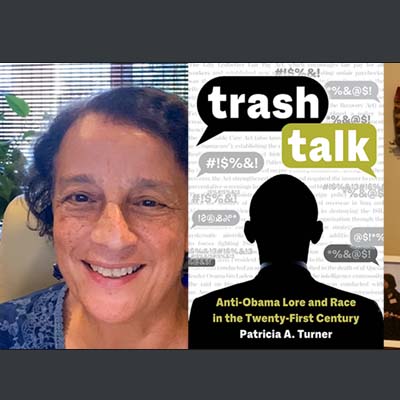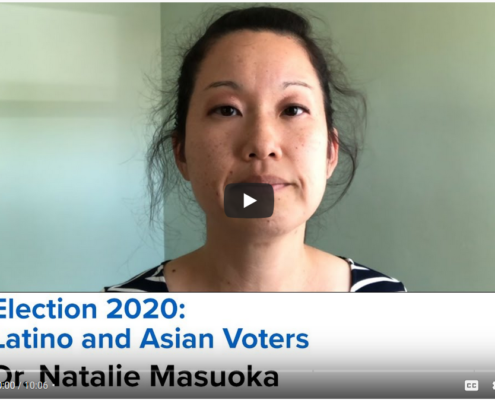Posts

Trash Talk: Anti-Obama Lore and Race in the 21st Century – Video
"Trash Talk: Anti-Obama Lore and Race in the Twenty-First…

RSVP for an October 6 Webinar w/ UCLA Prof. Lynn Vavreck & CBS’s John Dickerson Discussing the 2020 Campaign
U Heard It Here
“The 2020 Campaign for the Hardest Job in…

LA Social Science Election 2020: Latino and Asian Voters
UCLA Political Scientist and Race, Ethnicity, and Politics…

